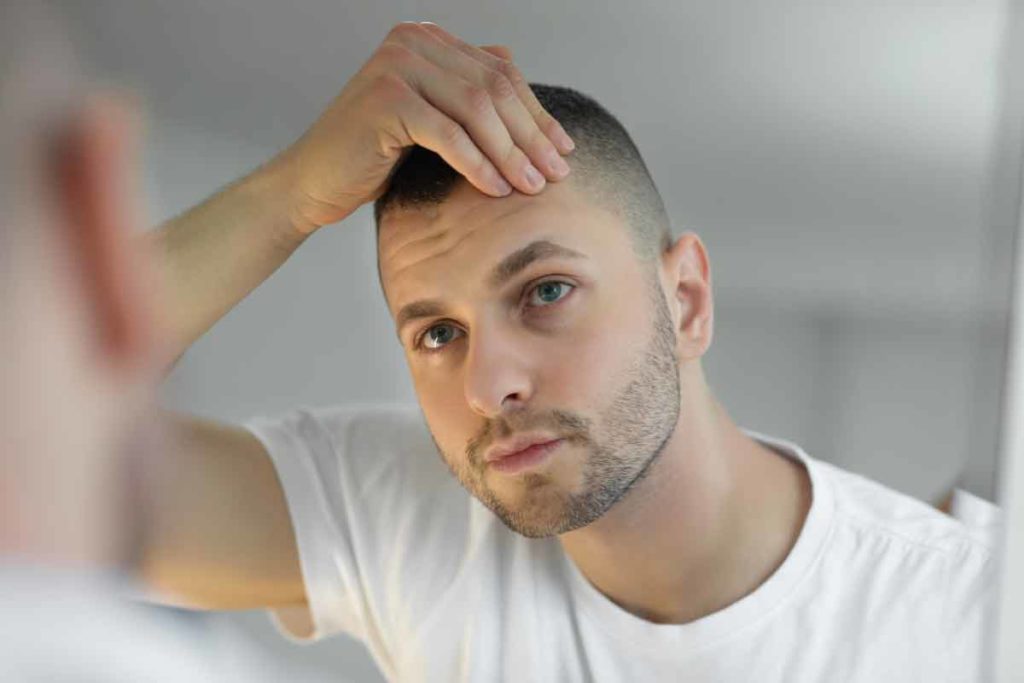Yes, monkeypox can cause a painful rash. But this week, I was surprised to learn of 2 deaths and 2 hospitalizations tied to the U.S. monkeypox outbreak. Monkeypox has reached all 50 states. So the arrival of the monkeypox vaccine is welcome news.
Do you need the vaccine? Do you need to worry about monkeypox?
For answers, we turned to UVA Health infectious disease expert Costi Sifri, MD. “This is a very serious public health challenge,” he says. “Monkeypox should not be dismissed as a mild illness that causes an annoying rash.”
How & Why Do People Get Super Sick from Monkeypox?
The two people with monkeypox who died were both immunocompromised. One was severely immunocompromised and suffered from other serious illnesses.
This week, we also learned of brain inflammation (encephalitis) in two men with monkeypox. “This isn’t terribly surprising. It’s a known, although rare, neurologic complication of monkeypox,” Sifri says.
He adds, “Both encephalitis patients were gay men in their 30s. Both were hospitalized, underwent therapy, and went to rehab with brain issues.”
Another monkeypox encephalitis case happened back in 2003. “The patient was a 6-year-old girl who fortunately made a full recovery,” Sifri says. That outbreak infected about 70 people across several Midwest states. The current U.S. outbreak infection toll? More than 22,700 people so far.
Who’s at Risk for Serious Complications from Monkeypox?
“This is a very serious public health challenge. Monkeypox should not be dismissed as a mild illness that causes an annoying rash.”
Costi Sifri, MD, UVA Health infectious disease expert
You’re more likely to have severe complications if you are:
- Immunocompromised
- Pregnant
- Under 8 years old
But you could also have serious complications if you have atopic dermatitis or eczema.
Sifri points out that serious complications are rare for the general public. But it’s why the public health community is taking this outbreak so seriously.
Should I Worry About Monkeypox?
Anyone can get and spread monkeypox. But most of us don’t need to worry.
“It’s not easily transmitted,” Sifri says. He underscores that “Your risk for exposure to monkeypox is super low if you don’t have close contact with someone who has monkeypox.”
You CAN’T get monkeypox from:
- Walking past someone who’s infected
- Casually talking with someone who’s infected
Who’s at Risk of Catching Monkeypox Now?
Having sex with multiple partners puts you at the highest risk, according to the CDC.
You’re also considered at risk if you:
- Are a sex worker
- Work at a place where sexual activity occurs
Latest U.S. Monkeypox Numbers
as of Sept. 15, 2022 from Virginia Department of Health & CDC
22,700+ reported cases (422 in Virginia)
First week of September, 23 cases reported in Virginia — down from August’s peak of 56
Men make up 96% of Virginia monkeypox cases
No one in Virginia under age 15 reported to have monkeypox
First death from monkeypox reported in California. (A Texas man with monkeypox died. But it’s not clear if monkeypox was cause.)
One man in D.C. and another in Colorado developed brain inflammation from monkeypox.
Who Can Get a Monkeypox Vaccine in Virginia?
Right now, you only need the monkeypox vaccine if:
- You’ve been exposed to monkeypox or
- Are at high risk of exposure to the monkeypox virus
How Do I Get a Monkeypox Vaccine in Virginia?
Contact your local health department. They’ll decide if you need the monkeypox vaccine.
You might even hear from your local health department. That’s because they’re using networks to identify anyone possibly exposed to the monkeypox virus.
At UVA Health, we’ve provided vaccines to our lab employees who test for the monkeypox virus. And we’re reaching out to UVA Health patients at high risk.
“Right now, we have limited supplies of the monkeypox vaccine. We have enough doses to immunize about 20 of our patients a week,” Sifri says.
Subscribe to Healthy Balance
Don’t Miss Any Monkeypox Outbreak Updates
If You’re Eligible for a Monkeypox Vaccine in Virginia
- You’ll need two doses of the monkeypox vaccine (JYNNEOS). You’ll get the second dose 28 days after the first.
- Full protection kicks in 14 days after your second dose.
- Between doses, don’t let your guard down against monkeypox.
- After you’re fully vaccinated, continue taking preventive measures. Why? Because we don’t yet know if JYNNEOS will fully protect against monkeypox virus infection in this outbreak. You could get infected even if vaccinated.
Best Ways to Prevent Monkeypox?
- Don’t touch another person’s rash or scabs.
- Don’t share eating utensils, cups, clothing, bedding, towels, or personal grooming devices.
- After contact with an infected person or animal, wash your hands with soap and water. Or use an alcohol-based hand sanitizer.
- Wear a mask when you may have very long or close face-to-face contact with someone who may be infected.
Have Symptoms of Monkeypox?
If you develop symptoms like a new rash, stay home. And call your healthcare provider. “Even mild illness can be very painful,” Sifri says. “It can require a prolonged period of isolation and is very disruptive to a person’s life.”
